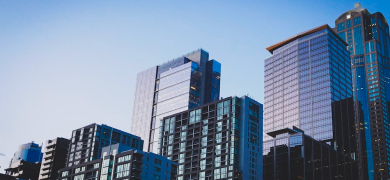



Mumbai, often referred to as the financial capital of India, is a city that never sleeps. Its dynamic landscape and vibrant culture make it one of the most sought-after destinations for real estate investment. As we look ahead, the future of real estate in Mumbai is poised for exciting transformations. Let's delve into the trends, challenges, and opportunities that will shape the real estate market in this bustling metropolis.
As the population of Mumbai continues to grow, so does the demand for housing. With millions migrating to the city in search of better opportunities, the need for affordable and accessible housing is more crucial than ever. Developers are focusing on creating residential spaces that cater to different income groups, including affordable housing projects that provide a viable solution for many. This trend is expected to gain momentum as the government introduces policies to support affordable housing initiatives.
Mumbai is also on the path to becoming a smart city, where technology meets urban planning. The government is investing in infrastructure improvements and integrating smart technologies into urban development. Smart cities are designed to enhance the quality of life for residents through better services, efficient transportation, and sustainable practices. Real estate developers are now incorporating smart home technologies and eco-friendly designs into their projects, ensuring that they meet the demands of modern living.
Sustainability is no longer just a buzzword; it's becoming a necessity in real estate development. With rising concerns about climate change and environmental degradation, builders in Mumbai are prioritizing green practices. This includes using eco-friendly materials, implementing energy-efficient systems, and creating green spaces within residential and commercial complexes. Future developments will likely focus more on sustainability, appealing to environmentally conscious buyers.
While residential real estate remains a priority, commercial real estate in Mumbai is also set for significant growth. With the rise of startups and the expansion of multinational companies, the demand for office spaces is on the rise. Areas like Bandra-Kurla Complex (BKC) and Lower Parel are becoming prime locations for corporate offices. Additionally, the trend of co-working spaces is gaining traction, providing flexible work environments that cater to the changing dynamics of work.
Infrastructure development is crucial for the growth of real estate. Mumbai is witnessing several infrastructure projects, including new metro lines, highways, and airports, that will enhance connectivity within the city and its suburbs. Improved transport facilities will make remote areas more accessible, leading to increased real estate development in those regions. As connectivity improves, property values in previously overlooked areas are likely to rise, presenting new opportunities for investors.
The pandemic has reshaped buyer preferences, leading to a shift in the types of properties people are looking for. There’s a growing demand for larger homes with dedicated workspaces as more individuals embrace remote work. Buyers are also prioritizing properties with outdoor spaces and amenities that promote a healthy lifestyle. Developers will need to adapt to these changing preferences by offering homes that cater to the new normal.
As property prices in established areas continue to soar, many investors are turning their attention to emerging neighborhoods. Areas like Thane, Navi Mumbai, and the outskirts of Mumbai are witnessing significant development and are considered attractive for investment. These regions offer relatively lower property prices with the potential for substantial appreciation in the coming years. Investors looking for value should keep an eye on these emerging markets.